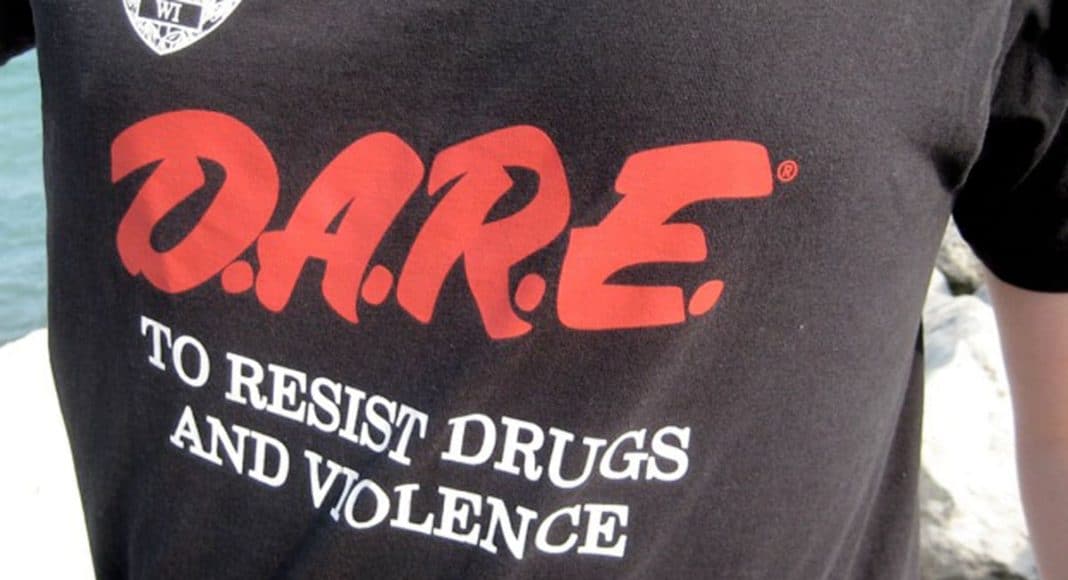If you grew up in the 1980s or early 1990s, you probably remember a police officer visiting your classroom to explain the dangers of drugs. DARE — Drug Abuse Resistance Education — fell out of favor two decades ago after research proved the program simply did not work.
Despite the earlier failure, DARE is making a comeback in some Colorado schools, according to a report in the Denver Post. According to the reporting from Monte Whaley, not everyone is pleased with the news:
“The DARE brand is toxic,” said Andrew Freedman, former director of Marijuana Coordination for the State of Colorado, which set up the regulatory framework for the state’s pot industry. Freedman is also leading the Youth Marijuana Prevention Council, a drug-abuse prevention group.
“I know DARE strikes a nostalgic chord for a lot of adults, certainly adults of a certain generation,” said Freedman. “But what works with kids is not the same message.”
But a specialist in substance prevention with the Denver Public Schools believes the time is right to reintroduce some of the messaging. “I’m a realist. We do know there are medicinal properties in marijuana and kids will likely be exposed to its use,” said Kennedy Sabelko. “We need to meet kids where they are at. Just telling kids they can’t do that is not going to work.”
-
Related Story: A Guide For Talking To Your Teens About Marijuana
Sabelko and other supporters of the new DARE messaging believe the current version is more rooted in science. DARE 2.0, they say, is built on the ideas of prevention specialists and scientists. The original program was designed off of the ideas of law enforcement, which did not have a strong grasp of educating children.
In 1999, a study conducted by the American Psychological Association concluded that the DARE curriculum was ineffective. Two years later, the Office of the Surgeon General arrived at the same conclusion. And then in 2013, the Government Accounting Office found that DARE may actually have increased drug use among some adolescents.
Richard Clayton, a critic of the previous attempts by DARE to educate children, applauds the new efforts. “DARE took the scientific community seriously, worked hard with them, and now DARE has become a lot more effective,” Clayton told the Post. “My hat is off to them.”
Studies suggest that the new program is working. Last year, the US Surgeon General Vivek H. Murthy lauded DARE for providing students with accurate information about substance abuse.


